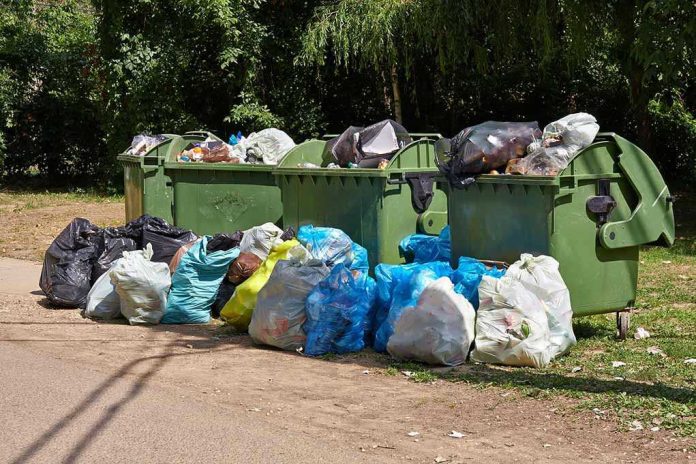
A new wave of technological innovation in waste collection promises to revolutionize the industry, but at what cost to traditional jobs?
Story Overview
- Oshkosh’s HARR-E and Volterra ZSL represent cutting-edge advances in waste technology.
- Smart sensors and electric trucks aim to reduce emissions and noise pollution.
- Challenges include high initial costs and slow adoption rates.
- Potential job displacement in traditional waste management roles.
Innovative Waste Management Technologies
Waste collection is evolving rapidly with the introduction of advanced technologies like autonomous robots and electric vehicles. Oshkosh Corporation’s HARR-E robot and Volterra ZSL electric refuse truck bring new possibilities for cleaner, quieter, and more efficient garbage pickup. These innovations address urban challenges such as labor shortages and emissions, promising on-demand service and optimized collection routes.
In addition to autonomous robots, companies like Nordsense are deploying smart bin sensors to enhance waste collection logistics. These sensors provide real-time data, enabling municipalities to optimize routes and reduce overflow incidents. Early adopters have reported up to a 30% reduction in CO₂ emissions, highlighting the environmental benefits of these technologies.
Challenges and Adoption Barriers
Despite the promising potential, these technologies face significant hurdles in terms of cost and adoption pace. The upfront investment required for new vehicles, smart sensors, and charging infrastructure presents a financial challenge for municipalities and operators. Additionally, widespread adoption is likely to be gradual, constrained by existing infrastructure and budget limitations.
Workforce adaptation is another critical issue. As automation and electrification advance, traditional waste management roles may face displacement. However, the transition also creates opportunities for new technical and maintenance positions, requiring a shift in skills and training for workers in the sector.
Long-Term Implications for Urban Waste Management
In the long run, the integration of these technologies could transform urban waste logistics. A reduction in the number of trucks and drivers needed, combined with significant decreases in greenhouse gas emissions and noise pollution, would reshape urban environments. Municipalities stand to benefit from data-driven planning and potential cost savings, although social acceptance will depend on reliability and privacy concerns related to data collection.
Overall, while the future of waste collection holds great promise, it is essential to carefully consider the economic, social, and political impacts of this technological shift. Stakeholders, including municipalities, residents, and technology providers, must collaborate to ensure a smooth and equitable transition to these innovative solutions.
Sources:
Oshkosh Unveils First-Ever Front-Loading EV Garbage Truck
Video: Taking Out the Trash? There’s a Robot for That
Autonomous Waste Solutions: Can Oshkosh Make Cities Cleaner?
Technology for Everyday Heroes



